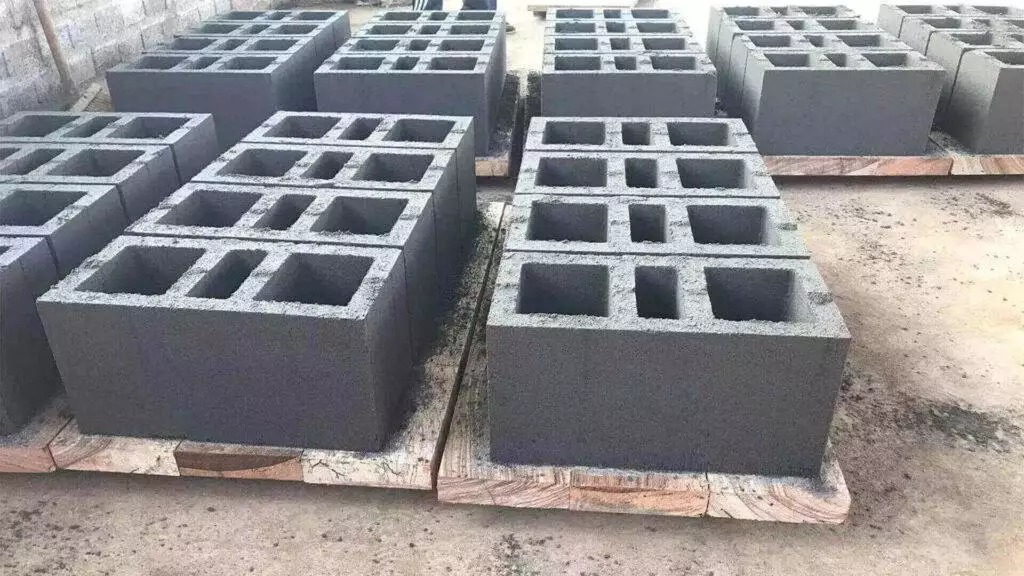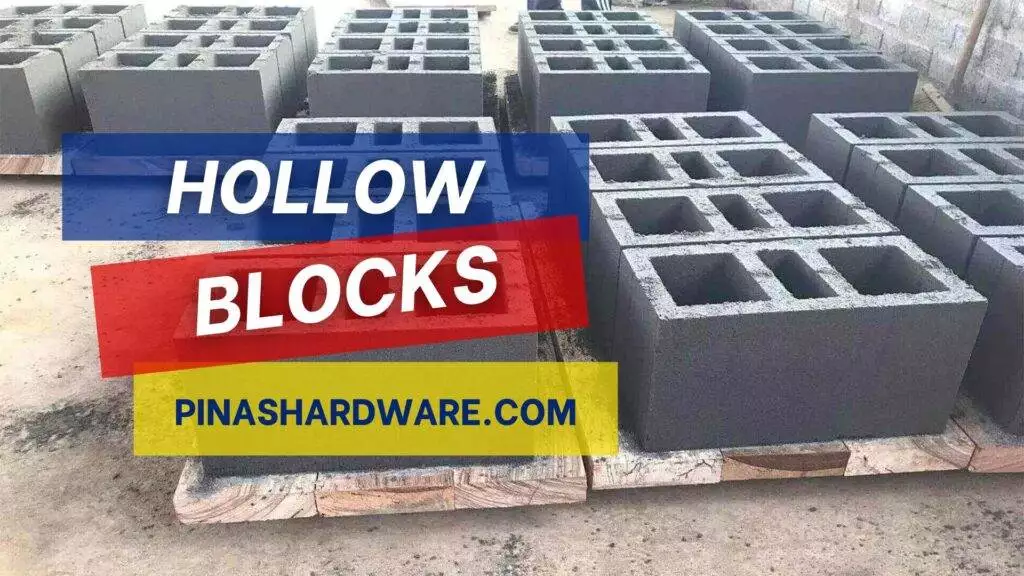Hollow Blocks or hollow cements are rectangular-shaped concrete blocks with hollows made with the use of concrete block-making machines. These blocks have hollow cores within their structure, which significantly reduces their weight while still maintaining strength. The use of hollow blocks is very common in construction projects for applications such as building walls, partitions, and other structural elements due to their versatility and cost-effectiveness when compared to pure concrete blocks.
Hollow Blocks Prices
The prices of hollow blocks can vary based on factors such as the materials used and the size of each block. Typically, the average cost per block falls within the range of ₱20.00 to ₱50.00. These price variations provide flexibility for customers to choose blocks that best suit their construction needs while considering budget constraints.
Advantages of Hollow Blocks
Reduced Weight – The hollow core design of hollow blocks reduces their overall weight which makes them easier to handle, transport, and install compared to solid blocks or traditional bricks.
Cost-Effective – Hollow Blocks are often considered cost-effective as they provide greater coverage with less material used than pure concretes which can result in larger cost savings in construction projects.

Versatility – Hollow Blocks are versatile and can be used for various construction applications, including load-bearing walls, non-load-bearing walls, partitions, and more.
Strength and Durability – Hollow Blocks are mostly used to provide structural support and stability which makes them suitable for different types of projects such as
Reduced Material Consumption – The hollow design allows for the efficient use of materials, reducing the amount of concrete required compared to solid blocks.
Disadvantages of Hollow Blocks
Limited Load-Bearing Capacity – While hollow blocks can provide structural strength, their load-bearing capacity is limited compared to solid blocks in most applications.
Moisture Absorption – The hollow cores in the blocks can also absorb moisture, particularly if it is not properly sealed or protected which could affect the overall durability of the blocks in certain conditions.
Surface Finish – The surface texture of hollow blocks may not always have the same aesthetic appeal as some other materials. Additional finishing techniques are needed for decorative purposes.
Transportation – The lightweight nature of hollow blocks can be an advantage, but it may also lead to challenges during transportation, as it makes them prone to breaking and cracking.
Video of Hollow Blocks
FAQs
What are hollow blocks used for?
Hollow blocks as its name suggests are blocks of concrete with hollows in their cross-section area used for building boundary fences and other structures.
What is the standard size of hollow blocks?
There are different sizes of hollow blocks, but the most common sizes are 4 inches, 5 inches, 6 inches, and 8 inches.
What is another name for hollow block?
The most common alternative names for hollow blocks are hollow cement blocks and hollow concrete blocks.
What is CHB in construction?
CHB in construction is the term for masonry which is the process of building structures with individual units like brick, stone, concrete, and block.
What is the alternative to hollow blocks?
The most used alternative for hollow blocks in the Philippines is the concrete precast wall form block which is also a patented Filipino invention.

